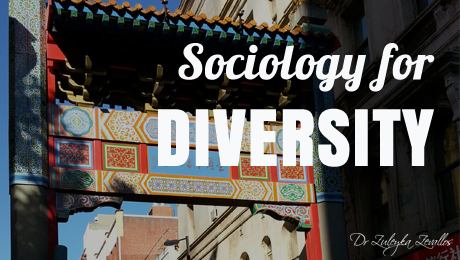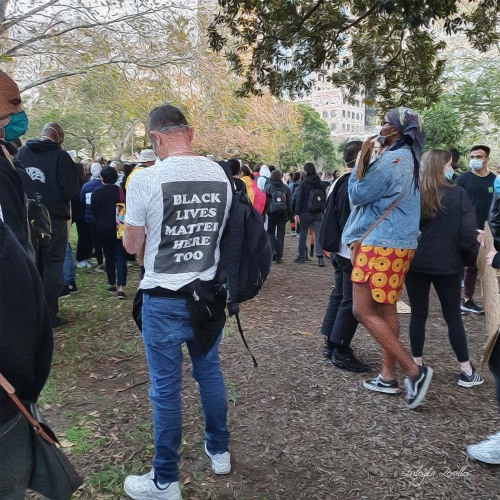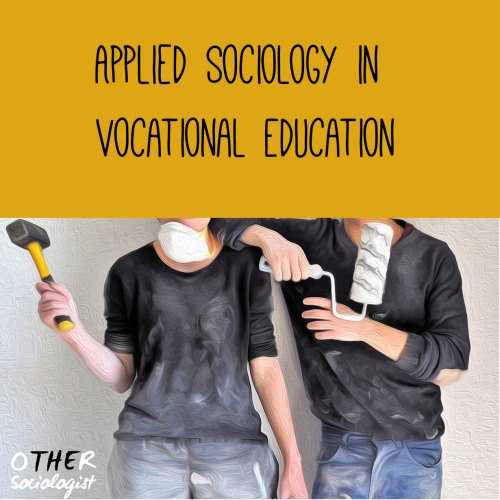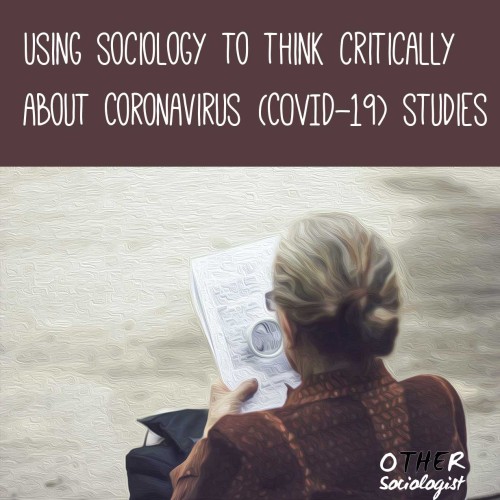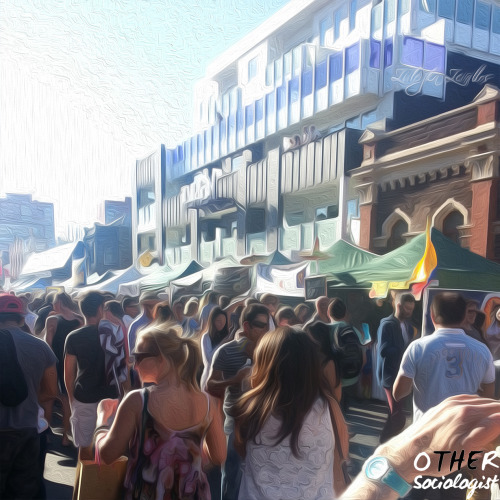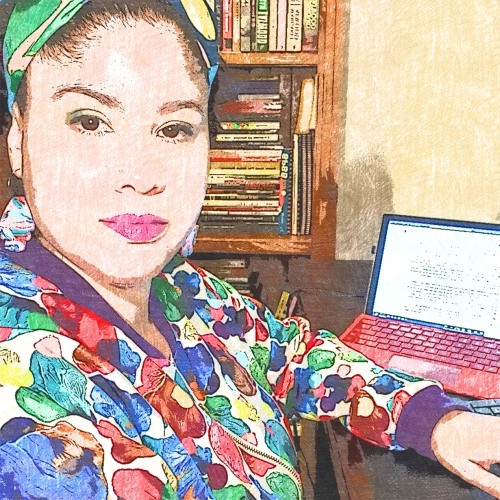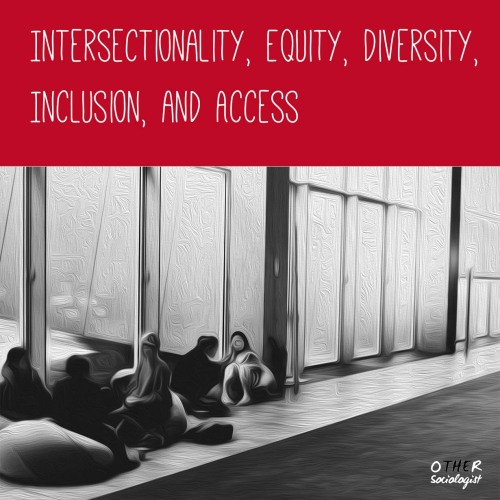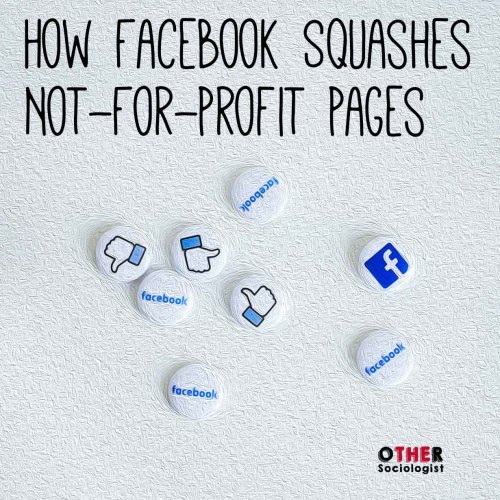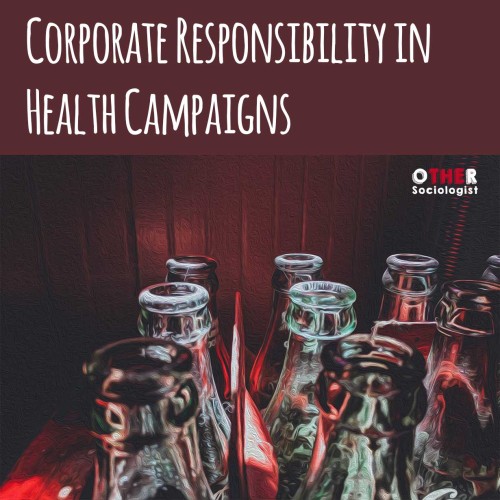#zee sociology
After completing my PhD at the end of 2004, I continued to work as a lecturer. I left in 2006 because there was no job security in academia. I found it difficult to find full-time academic work in my field, but once I started looking in business and policy sectors, the job choices were surprisingly abundant. I’ve reflected on the fact that, at first, it was very disheartening to give up on my dream job in academia, but once I realised the multiple career possibilities in other industries, the decision to leave was empowering.
A career beyond academia leads to diverse experiences, and the work will likely take you to places you may not have expected. Having had little luck for months trying to get an academic job, I decided to apply for unconventional roles that sounded interesting. I received a number of different offers, which showed me how valuable my PhD degree was to non-academic employers. I took a job in federal government as a Social Scientist. I moved interstate to take the position. Within five years, I had led two interdisciplinary team projects working on social modeling and intercultural communication, and I also conducted research on a range of topics, from political violence to media analysis to the socio-economic outcomes of migrants and refugees. The role was varied so that I worked with many different clients, and I also attended conferences and published articles, which kept me engaged with my academic peers.
In late 2011, I decided to move back to my home state permanently. I worked as a Senior Analyst on an environmental health and safety investigation. I led a team of 23 researchers examining 30 years worth of reports and company data, as well as analysing interviews with 300 emergency service workers. We evaluated the connections between training and environmental practices, the chemicals used during exercises, and the high rate of cancer and other illnesses amongst emergency service workers.
After the investigation ended, I decided to set up my business. I had plenty of leadership experience, and had worked autonomously in setting up various projects in my previous roles, plus I had worked with many different client groups. Setting up the business required a lot of research, and I also took a business management course. I’ve been working as a consultant for the past couple of years.
Diversity has been an ongoing theme of my research. I’ve been working on diversity issues in science and business. This includes how social science can be used to improve management of multicultural workplaces, and how gender diversity is important to the Internet. There is a lack of diversity in sociology that also needs attention. Our traditions still privilege the knowledge of White researchers from Europe and North America, but we also have a narrow academic vision of what it means to practice sociology. Similarly other sciences are structured around the skills and knowledge of White middle class men.
[Image: the entrance to Chinatown, Melbourne]
Post link
Sociology for Women
Over on my research blog, The Other Sociologist, I’ve written about How Media Hype Hurts Public Knowledge of Science. I discuss how scientists can better support public education by critiquing poor science reporting in the news. A recent example involved the media reporting that most people think that astrology is a science. This “factoid” came from a large study by the American National Science Foundation, but the results were quoted out of context and needed scientific critique. The broader study actually shows that the public do not really understand what scientists do, how our research is funded and the outputs of our work. This lack of knowledge undermines the public’s general understanding and trust in science. I argued that more scientists can get involved in diverse outreach activities to support public learning. This is part of a long-standing series I’ve been writing on how to improve public science education. Read more my blog.
On Sociology at Work, I talked about How Sociology Class Discussions Benefit Your Career. I used this post to highlight how the group work we do during an undergraduate degree trains students for the types of activities they’ll carry out as applied researchers outside academia. This includes dealing with clients, running community consultations and thinking critically on our feet. Learn more.
The rest of this post is about my most recent writing on gender equality in business and in science and technology.
Post link
Public Sociology and the Pandemic
It’s been a long while! Over the past couple of months, in my paid work, I’ve been co-leading a large randomised control trial in public health. Hoping we can publish results in the new year. Our team is also busy researching issues of technology and safety. In my personal research, Associate Professor Alana Lentin and I wrapped up series 1 of Race in Society. We covered media representations; the lockdown and ableism; intersectionality; policing; and economics. I’ll bring you write ups of other episodes soon, or head to our YouTube to watch the videos.
In case you missed it, here are two interviews I gave earlier in the year, on the sociology of COVID-19. Unfortunately, the topics of moral panics and misinformation remain relevant.
Post link
Indigenous Sovereignty and Responses to COVID-19
In Episode 2 of Race in Society, Associate Professor Alana Lentin and I are joined by Jill Gallagher, Chief Executive Officer of the Victorian Aboriginal Community Controlled Health Organisation (VACCHO), who are leading COVID-19 pandemic responses in Victoria. She discusses how the pandemic amplifies existing health and social inequalities. Also on the panel is sociologist, Professor Aileen Moreton-Robinson, who is Professor of Indigenous Research at RMIT University, and author of countless critical race books, including, ‘The White Possessive‘. She demonstrates how her theorisation of Aboriginal sovereignty disrupts how the pandemic is currently understood. Finally, we also speak with sociologist Dr Debbie Bargallie, Senior research fellow at Griffith University, and author of the excellent new release, ‘Unmasking the Racial Contract: Indigenous voices on racism in the Australian Public Service.’ She talks about how Aboriginal people are excluded from social policy, which has compounded poor decision-making on public health during the pandemic.
[Image: people protesting holding up signs. A person holds the Aboriginal flag high]
Post link
Lockdown, Healthcare and Racist Ableism
Disability studies have long been dominated by White, non-Indigenous frameworks which ignore race. The work of Professor John Gilroy and other Aboriginal scholars show that the field of disability regularly assumes that White middle-class ways of understanding disability are universal, and they therefore enforce whiteness upon disabled bodies. Our panel today will unpack the ways in which Aboriginal and Torres Strait Islander people living with disabilities can be better supported in the health system, how to establish cultural safety during the pandemic, and what an antiracist response to healthcare might look like.
Panellists
June Riemer is a proud Dhungutti woman from the North Coast of NSW. Throughout her career and personal life she has always championed and fought selflessly for the rights of Aboriginal people. She leads and inspires a national dedicated team and is trusted and respected by Elders across many Aboriginal communities nationally. Having worked in the community care sector for over 40 years, she shares her knowledge in an advisory capacity across multiple boards and reference groups, ensuring the rights and culture of our people are represented, respected and protected. June has represented Australia’s First People with disability alongside other Indigenous leaders, at the United Nations in both New York and Geneva. Her passion and loyalty for change is driven from the nurturing she had, from my own Elders from a young age, and it is this history that continues herjourney for change.
Lilon Bandler is Associate Professor and Principal Research Fellow for Leaders in Indigenous Medical Education (LIME) Network, working on a range of Indigenous health education projects across the spectrum of medical education. At the Sydney Medical School (2006-2019) she managed the admission pathways and provided a comprehensive support program for Aboriginal and Torres Strait Islander medical students, whilst she developed, implemented and evaluated the Indigenous health education program. She continues to provide GP services to rural, remote and very remote western New South Wales, Australia.
Dr Chris Lemoh practises infectious diseases medicine and refugee health. He has contributed to the development of guidelines for assessing the health of recently arrived refugees and asylum seekers. Chris has a strong interest in the relationship between social equity and health. Specific interests include refugee health, HIV in mobile and marginalised populations and cross-cultural research in sexual and reproductive health. He is a former member of the Board of the Australian Federation of AIDS Organisations and has an ongoing interest in the role of community engagement in public health research and delivery of clinical services. He also holds a Diploma in Clinical Epidemiology from Monash University and is a Fellow of the Royal Australasian College of Physicians, having trained at St Vincent’s Hospital (Melbourne) and The Alfred. He was awarded a PhD in Medicine from The University of Melbourne in 2014: his doctoral thesis concerned ‘HIV in Victoria’s African communities.’ Chris is President of the Victorian African Health Action Network.
Race in Society
Associate Professor Alana Lentin and I are both sociologists and we’ve launched a new webseries called “Race in Society.” The first season is dedicated to “Race and COVID-19.” In this first episode, we cover the inspiration for the series and why we are focusing on the pandemic.
In the video, Alana explains how our idea for Race in Society came about. We were noticing an increased interest in critical race studies among academics, students, and the broader public. Much of this discussion replicates ideas of race from North America, which is not necessarily applicable to Australia.
Post link
This is the second of two posts showing how applied sociology is used in a multi-disciplinary behavioural science project to improve social policy and program delivery.
We scaled our previous trials that used behavioural science to increase pre-service teachers’ uptake of professional placements in rural and remote New South Wales (NSW). We used timely and personalised communications, simplified research on placements, and offered a group placement experience. These interventions led to 55 pre-service teachers completing their placements at geographically isolated schools, with 100% of them saying they would consider taking up long-term employment at a rural or remote school in the future.
[Image: An Asian man is pointing to a woman’s open book as she listens intently]
Post link
This is part one of two posts showing how applied sociology is used in a multi-disciplinary behavioural science project to improve social policy and program delivery.
Our randomised control trial (RCT) sought to improve outcomes for apprentices and trainees through a behavioural intervention. Learners and their employers were separately visited to discuss contractual responsibilities and to set goals that were meaningful to the learner. Fortnightly emails to employers and text messages (SMS) to learners then reinforced these themes for a period of three months. At the end of this time, separate phone calls to employers and learners were undertaken to check their progress on goals and to work through any workplace issues. We then stopped further communication and analysed completion rates 12-months later. Though our intervention did not lead to a statistically significant result in the retention rate of learners, we suggest early, behaviourally informed support in the first 12 months can help learners persevere toward apprenticeship completion.
[Image: two people stand together. One holds a hammer, the other a paint roller]
Post link
Using sociology to think critically about Coronavirus COVID-19 studies
I’ve been thinking a lot about the role of public sociology because of the Coronavirus (COVID-19) pandemic.
Earlier in the pandemic, I worked with some colleagues on an early literature review scoping policy responses to the pandemic, and I’ve provided feedback on evolving policy research. As an applied sociologist, my focus has been on how race, culture, disability, gender, and other socioeconomics impact how people understand and act on public health initiatives, as well as ethical considerations of COVID research “on the run.”
Since then, I’ve been keeping up with both the research and media coverage of public health responses. I’ve been providing summaries of unfolding information on my social media (primarily Facebook and Instagram stories, as well as Twitter). This started partly to address some of the misconceptions I was seeing amongst my friends and family and I’ve kept this up as it’s been the most efficient way to help people in my life better understand what the restrictions mean for them, or to correct confusing reports.
Unfortunately, there is a lot of misinformation. People are hungry for practical advice, but don’t know who to trust (they don’t know where to look for credible resources), or they feel overwhelmed with too many conflicting directions. This is known as information overload, and it leads to poor decision-making.
One of the patterns that has been especially concerning are people writing social media posts, op eds and even setting up consultancies to profiteer from COVID-19 without any health training or policy experience. This contributes to public distrust, conspiracy theories or poor discussion that is not based on evidence. People are choosing to confirm their pre-existing beliefs, rather than engaging critically with scientific information that challenges their perspective. This is known as confirmation bias. It stops people from considering new information and different points of view that might be helpful to their wellbeing.
Reading original scientific journal articles is not always possible as there is often a paywall. Plus, science papers are, by definition, published for the academic community. The language is technical, and the principles can be hard to follow for people who are not subject matter experts. This makes it more important for scientists who have access to write about science research in an accessible manner and to share findings through different communities.
While data on COVID-19 are evolving, and no one can claim to be a definitive COVID-19 expert, the best sources to trust are official sources, such as state Health Departments, epidemiologists, virologists, health practitioners who are providing front-line services (such as Aboriginal-controlled health organisations), and policy analysts who work on COVID-19 responses. Additionally, reliable news sites include the ABC News Australia live blog, Croakey and individual health researchers, such as epidemiologist Dr Zoe Hyde (University of Western Australia) on Twitter.
If you read about a study, how do you know if you can trust the conclusions? What’s the best approach if you wanted to write about a study’s findings for a broader audience, whether it’s your friends and family reading your Facebook feed, or an article in a major news site? Today’s post gives tips for how to read a study using critical thinking principles from sociology, and things to consider if you want to write about, or share, studies that you read about.
[Image: a woman is seen from the back, she is reading]
Post link
Career Planning in the Research Sector
I’m sharing the resource I created for the Association of Iberian and Latin American Studies of Australasia Conference. This presentation is intended for early career researchers who may be near completion of a postgraduate degree, or recently completed a Masters or PhD. I look at how Latin American studies scholars can market their skills, especially given the impact of the COVID-19 pandemic. The lessons are applicable for other early career researchers.
You can flick through my slides, and see other resources on how to look for work, prepare a CV, and interview.
[Image: people walk through a busy festival]
Post link
Pandemic, race and moral panic
In the afternoon of 4 July 2020, Victorian Premier, Daniel Andrews, gave a press conference announcing that two more postcodes are being added to COVID-19 lockdown (making 12 in total) (McMillan & Mannix, 2020). The new postcodes under Stage-3 lockdown are 3031 Flemington and 3051 North Melbourne.
Additionally, the Victorian Government is effectively criminalising the poor: nine public housing towers are being put into complete lockdown. The Premier said: “There’s no reason to leave for five days, effective immediately.” This affects 1,345 public housing units, and approximately 3,000 residents.
Public housing lockdown is made under Public Order laws. Residents will be under police-enforced lockdown for a minimum of five days, and up to 14 days, to enable “everyone to be tested.”
How do we know this public housing order is about criminalising the poor, and driven by race? The discourse that the Premier used to legitimise this decision echoes historical moral panics and paternalistic policies that are harmful.
Let’s take a look at the moral panics over the pandemic in Australia, and how race and class are affecting the policing of “voluntary” testing.
I support continued social distancing, self-isolation for myself and others who can afford to work from home, quarantine for people who are infected so they can get the care they need without infecting others, and widespread testing for affected regions. These outcomes are best achieved through targeted public communication campaigns that address the misconceptions of the pandemic, the benefits of testing for different groups, making clear the support available for people who test positive, and addressing the structural barriers that limit people’s ability to comply with public health measures.
[Image: a woman wears a face mask]
Post link
Media Representations of Race and the Pandemic
Season 1 “Race and COVID-19,” Episode 3, ‘Media Representations of Race and the Pandemic’.
One of the outcomes of colonisation and accompanying racial rule is the control of public narratives by non-Indigenous settlers. This results in a lack of attention to the ways in which Aboriginal and Torres Strait Islander people interpret the world. Aboriginal people have been telling stories for over 65,000 years, and we honour this expertise and wisdom. We believe it is very important to consider the role played by the media in framing public discussions of the link between race and Covid-19. Mainstream media create sensationalist accounts that spread moral panics about racialised people.
Amoral panic is when a group or event is seen as a threat to social values, usually during a time of massive social change, such as the pandemic. A moral panic whips up fear of particular groups, especially racial minorities. At the same time, it protects the interests of groups at the top of the racial hierarchy, which, in Australia, is white people of European descent.
Panellists:
Summer May Finlay is a Yorta Yorta Woman who grew up in Lake Macquarie near Newcastle. She is a Lecturer at the University of Wollongong, a Research Assistant at the University of Canberra, and a contributing editor at Croakey Health Media. She specializes in health policy, qualitative research and communications. She has worked in Aboriginal affairs at the National level and has strong professional connections across the country in the Aboriginal Community Controlled Health Service sector. Her article on “Aboriginal Community Controlled Health Organisations are taking a leading role in COVID‐19 health communication” is available here: https://onlinelibrary.wiley.com/doi/f…
Dr Karen Schamberger is an independent curator and historian with interests in migration, cross-cultural relations and material culture. She is currently working with the Lambing Flat Folk Museum volunteers to redevelop an exhibition about the development of the town of Young from the goldrush, including the anti-Chinese riots in 1860-1. She has previously worked at the National Museum of Australia and Museums Victoria. Read about her research into the racism of Lambing Flat: https://www.theguardian.com/artanddes…
Running a research project as an applied sociologist
Let’s chat about what it’s like to run a typical personal research project as an applied social scientist. Outside of my paid work, I laboured on a resource on equity and diversity. I wanted to reflect on the journey.
Part of the reason why I’m sharing this is so that you can get to know me a little better, but also because many people don’t realise what it’s like to be an applied sociologist. It means all my scholarship needs to happen outside of my paid work. It is exhausting but incredibly important to my sociological practice.
Post link
Check out my resource, Intersectionality, Equity, Diversity, Inclusion, and Access. There are five individual chapters which are intentended to work together. The information is a comprehensive, though not exhaustive, introduction into the barriers and solutions to discrimination in academia and research organisations. The issues are restricted to career trajectory from postgraduate years to senior faculty for educators and researchers.
Each section includes a discussion of the theoretical and empirical literature, with practical, evidence-based solutions listed in text boxes, capturing my long-standing career in equity and diversity program management, education and research.
This resource is split into five pages, for the purposes of improving reading experience; however, all five sections are intended to paint an holistic picture for social change.
Explore the themes via this detailed table of contents.
[Image: people sit together on the ground in a large building]
Post link
I don’t post on my Other Sociologist Facebook page as often as I used to because Facebook is a racqueteering platform. Research has shown that since 2014, pages have lost at least 60% of ‘organic reach’ (that is, individual followers seeing page posts without promotions paid by brand pages). Some market research has determined that for most pages, only 6% of followers see their content, while other analysis shows it’s closer to 2%. My discussion is not new; social media analysts have been attuned to these patterns for the past decade. While the issues I discuss apply to many different companies and brand pages, I’m focusing on the impact that the Facebook model has on not-for-profit pages, specifically those like mine, which aim to educate the public for free.
Post link
When Coke launched its obesity campaign in Australia, social scientists spoke out about the problems with the messaging and strategy. The company says they are helping to combat weight-related illness by releasing smaller cans and by selling its low calorie Coke varieties. Coke also says it is providing nutritional information on its vending machines and it has teamed up with a bicycle group to encourage exercise.
This post discusses the problems with Coke’s social media marketing strategy to appear more socially conscious about public health. The issue is not about whether or not you or I drink cola occassionally; the issue is broader, about how companies blur the lines on health and junk food.
To date, Coke has tried, and failed, to improve their corporate responsibility. Coke invests a great deal of money in science as a means to address health concerns, however none of this marketing speaks to the social and health problems associated with sugary soft drinks. Addressing social science concerns would better serve Coke’s corporate change, if Coke is indeed committed to its campaign of healthy living.
Post link

